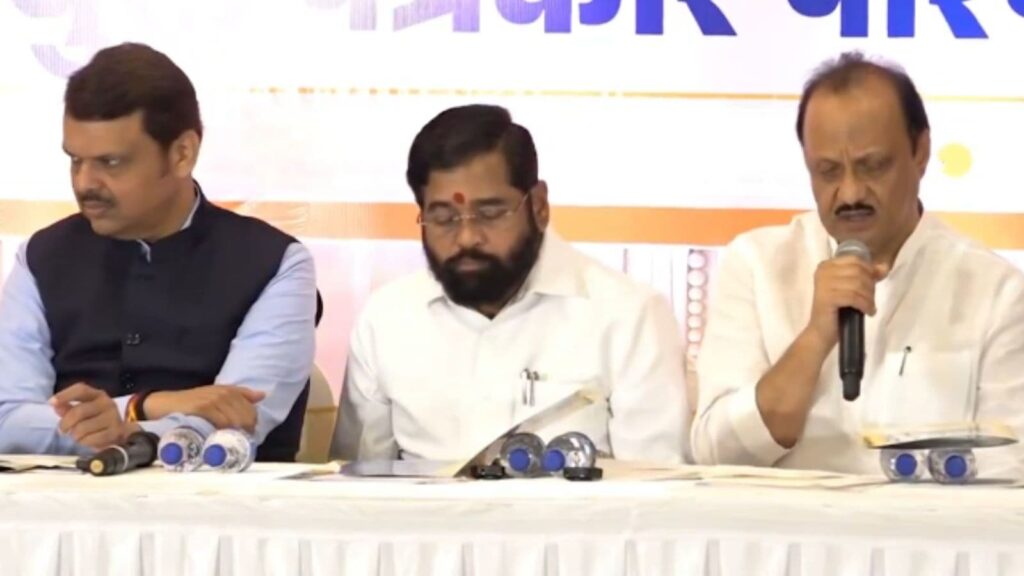970x125
THE ROW over the decision by several civic bodies in Maharashtra to close slaughterhouses and ban meat sales on Independence Day has again brought to the fore the gap between the ruling BJP’s vegetarian leanings and the meat-eating habits of the people of the state.
970x125
While the BJP has justified the move by the civic bodies, with many linking it to the fact that the festival of Janmashtami follows Independence Day, even its own alliance partners NCP and Shiv Sena are not convinced, and have expressed strong disapproval. The Opposition has accused Chief Minister Devendra Fadnavis of curbing individual freedom over choice of food.
More than four civic bodies – starting with Nagpur, Kalyan-Dombivli, Malegaon and Jalgaon – have ordered closure of slaughterhouses and meat shops for 24 hours on August 15. The Kalyan-Dombivli body (the first to issue the notification) said the restriction would apply to all licensed butchers dealing in goats, sheep, chicken, and large animals, and would come into force from midnight on August 14.
The Kalyan-Dombivli Municipal Corporation, like other civic bodies in the state, is currently under administrative rule – with the commissioner functioning as the state government’s representative – with polls not held since long.
The order related to Independence Day is being read against the backdrop of a growing vegetarian vs non-vegetarian debate in Maharashtra, particularly in Mumbai. While native Maharashtrians are largely non-vegetarian, the state’s Gujarati and Jain populations who don’t eat meat have been getting increasingly vociferous.
Noted Dalit writer and political thinker Arjun Dangle called the order yet another bid by the BJP-RSS “to keep its Hindutva agenda alive”. “Historically, Maharashtra has been known for progressive reforms, based on the ideology of Shahu-Phule-Ambedkar. The right wing wants to replace it with their Hindutva plank.”
The history
In 1995, a Shiv Sena-BJP government led by Manohar Joshi proposed extending a ban on the slaughter of cows to bulls and bullocks, passing the Maharashtra Animal Preservation (Amendment) Bill.
The legislation, however, remained pending in the absence of a presidential assent till 2015, when President Pranab Mukherjee gave the Bill his nod. The BJP led by Narendra Modi was in power at the Centre by then, while the party had also formed the government in Maharashtra again, in a coalition with the Shiv Sena, with Devendra Fadnavis as Chief Minister.
Apart from extending the ban on cow slaughter under the Maharashtra Animal Preservation Act of 1976 to bulls and bullocks, the new law prohibited the sale, purchase, transport and possession of beef. Possession of beef was made a non-bailable offence, punishable by up to five years in prison and a fine of Rs 10,000.
The BJP reasoned that “preservation of desi cow and cattle” through the legislation was in the larger interest of the agriculture sector and farmers.
The present
The latest order, to shut slaughterhouses and meat sales on Independence Day, angers farmers such as Vijay Jawandhia in Vidarbha region. “All these decisions are politically driven. Right-wing parties want to keep anti-Muslim sentiments on the boil. It has nothing to do with the agriculture sector, nor farmers’ welfare,” he says, asking what has the government done so far to help those like him who now have to look after aged cattle that they earlier disposed of, despite financial constraints. “What has the government done for their maintenance?”
Maharashtra BJP media cell-incharge Navnath Ban dismissed the charge of “playing politics” over Independence Day as “baseless”. “The decision to keep slaughterhouses and meat shops closed on important days such as Independence Day, Gandhi Jayanti, Mahavir Jayanti, Ram Navmi etc was taken by the then government in 1988. Since then this has been observed by some civic bodies… Why target the BJP?”
A Congress government led by Shankarrao Chavan was in power in Maharashtra in 1988.
However, the unease expressed by BJP allies shows that the party can’t sweep the issue under the carpet. Deputy Chief Minister Ajit Pawar Tuesday slammed the move to close slaughterhouses and ban meat on August 15 as ridiculous.
Speaking to mediapersons in Mumbai, he said: “It is an individual’s choice what to eat or not. Nobody has the right to impose a decision from the top.” Also, he added, being a vegetarian or not is part of an individual’s habit, culture and inheritance, and geographical conditions.
“While it is important to keep public sentiments and faith in mind on certain occasions like Ashadi Ekadhasi or Mahavir Jayanti… there is no reason for a ban on meat and non-vegetarian food on Maharashtra Day, Independence Day, Republic Day… In rural Maharashtra, whenever there is a celebration, people slaughter goats and eat non-vegetarian food,” Pawar said, giving the example of coastal Konkan region’s love for sea food.
A senior minister of the other Mahayuti ally, the Shiv Sena, voiced another concern. “Such decisions may appeal to Gujarati and Jain communities, who are a BJP vote bank. But the larger population of Maharashtra (including OBCs, Marathas, Dalits, tribals etc) can feel offended,” the minister said.
Aditya Thackeray, the leader of the Sena (UBT) that is in the Opposition’s Maha Vikas Aghadi’s coalition, demanded that the orders regarding August 15 be immediately withdrawn by the civic bodies concerned. “Even on Navratri our prasad has prawns, fish, because this is our tradition. This is our Hinduism. This is not a matter of religion, or of national interest… What we eat on I-Day is our freedom,” Thackeray said.
NCP (SP) MLA Rohit Pawar said the orders go against “basic principles and fundamental rights of the people”.
970x125

